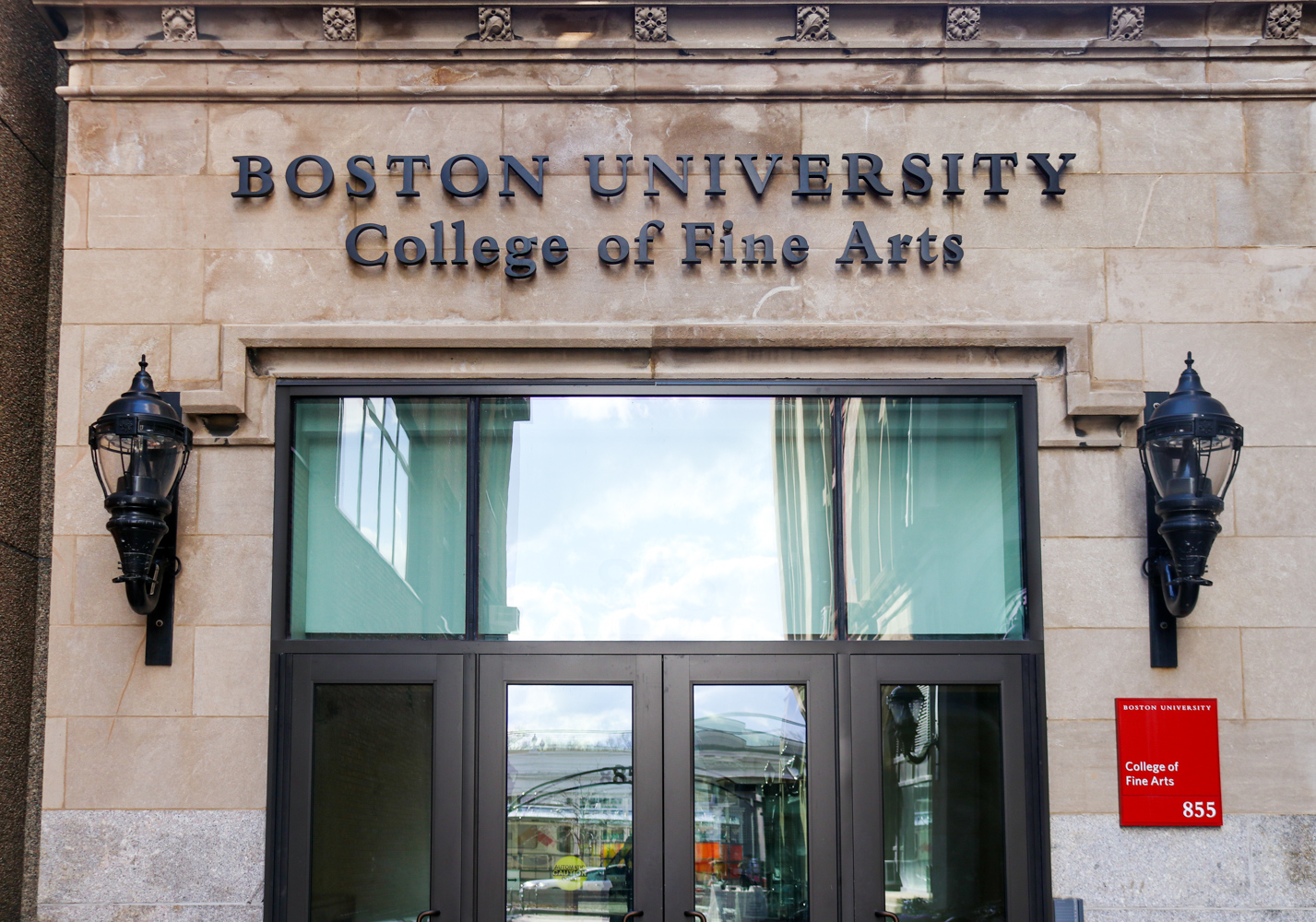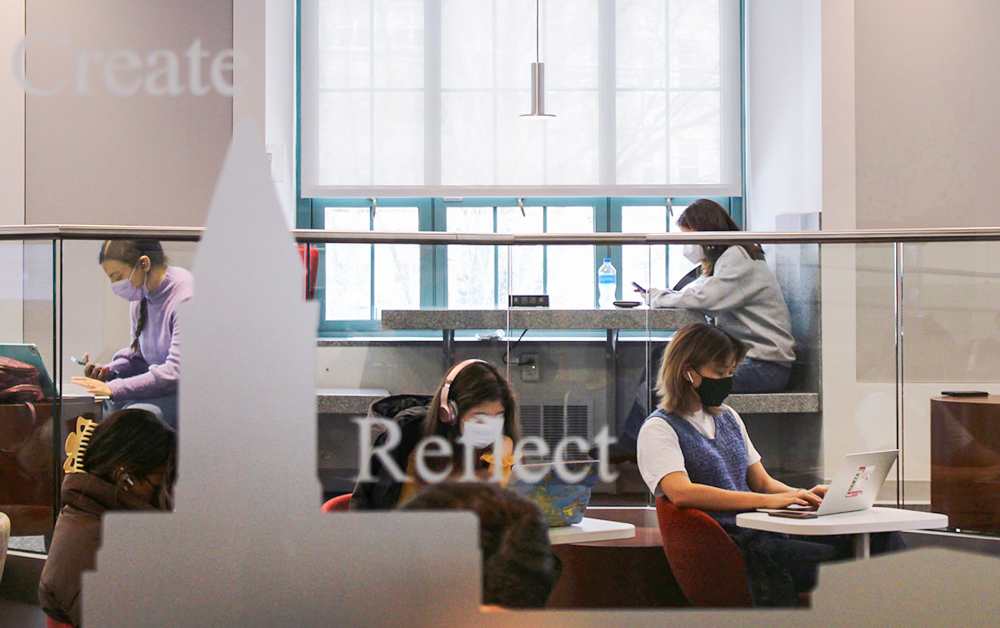Many in academia say it’s the million dollar question: Is it possible for all female professors to earn salaries equal to their male peers? It’s a question that Boston University continues to struggle with, but in recent years the university’s administration has not been entirely without answers.
In 2005, BU’s situation was somewhat dire. Its female full professors ‘-‘- a rank distinguishing professors from the associate or assistant level ‘-‘- were earning approximately 80 percent of what the university’s male full professors were making. Meanwhile, the average female full professor at a private U.S. university was earning more than 90 percent of her male counterpart’s salary, according to data from BU’s faculty council.
Since then, BU’s numbers have improved. In 2008, female full professors at BU made 89 percent of BU men with the same rank, according to data supplied by University Provost David Campbell. Nationally, the average gap between men and women full professors has slimly narrowed to a difference of 8 percent, according to a 2008 report by the American Association of University Professors.
Still, narrower gaps are gaps nonetheless. But Campbell said that salary inequities cannot be truly analyzed until numbers within each individual department are assessed.’
‘You cannot compare straight-up average salaries,’ Campbell said. ‘You have to compare by discipline. We brought the salary gap down and we did it on a discipline-by-discipline basis.’
Claudia Olivetti, a College of Arts and Sciences economics professor who has conducted extensive research on gender pay gaps, explained why it is so important to examine salary data from within a specific field. She presented a hypothetical situation in which economics professors earn $15 and English professors earn $10. If the economics department has only one woman and the English department has three, more lower-paid females will be included in the university’s overall numbers, which could skew the information.
‘When you look at the aggregate data, it could appear like there’s a wage gap even if within the department things are equal,’ Olivetti said.
Olivetti said women tend to gravitate toward fields in which they can demonstrate their progress in ways that are more comfortable. Often, professors are required to prove themselves by giving regular presentations of their work. In comparison to women, men tend to handle aggressive questioning that is associated with higher paying fields, like mathematics and economics, more easily.
‘Women are better at bringing the discussion together rather than being very aggressive,’ she said.
Campbell said the BU Council on Faculty Diversity and Inclusion – which the administration created in 2006 to help foster an equitable and diverse environment – analyzed salaries within departments. The Council has included the information in a report scheduled to be released within the next few weeks.’
‘You will see in [the CFDI report] a very thorough and impressive statistical analysis that shows that we have moved toward correcting most of the gender equity issues,’ Campbell said.
The council’s members are in the process of turning a 600-page comprehensive document into a condensed 30-page public version and cannot discuss the specifics of the report until it is released, Faculty Council Chairwoman Julie Sandell said.
But some deans and department heads were able to comment on gender equity within their constituencies.’
‘Because new faculty come into the College of General Studies as assistant professors and all start at the same salary by cohort year, we don’t see the gender pay gaps here that you might see in other programs, which recruit faculty at senior levels,’ CGS Dean Linda Wells said in an email.
BU’s female assistant professors make 93 percent, on average, of the university’s male assistant professors, according to Campbell.
Kevin Lang, who is the chairman of the department of economics, said in an email that he has ‘not received any sex-related pay complaints’ during his three-plus years as a department head or during his 21 years at BU.
EXPLAINING
THE
DISPARITY
A major part of achieving faculty equity stems from the hiring process, Campbell said. He explained that the university conducts gender-blind, merit-based searches to find the best possible candidates.
‘It is about excellence,’ Campbell said. ‘To search for excellence, you need to search broadly across areas, not be too narrow, but look for the very best candidate in a broad enough area that you can use.’
As certain fields ‘-‘- like law and medicine ‘-‘- started to graduate men and women at equal rates, Campbell said the university started hiring men and women in those fields at equal rates. He said BU is dependent on the available labor pool.
‘You can’t counter the market trends without putting yourself out of business,’ Campbell said.’ ‘
President Robert Brown’s hiring freeze will not affect BU’s faculty searches, according to Campbell, because the plan only freezes staff hires and allows for the university to continue searches that the administration has already approved.
Olivetti said she questions whether relying on the labor market will actually help narrow gender pay gaps. Salary negotiations often stem from professors receiving offers from other institutions, giving them a sort of bargaining power. But Olivetti said women have more trouble receiving competitive offers from other schools and having those offers taken seriously by their own institution because women tend to be less mobile and more tied to their families.’
‘Suppose I am an institution thinking about hiring someone. If he’s a man, there is a presumption that the wife will follow,’ Olivetti said. ‘If she is a woman, I have some concern that you might not consider the position because your husband is somewhere else.’
Olivetti said that a very effective way of bridging equity gaps is to eliminate those that already exist, which is part of BU’s solution. She said that if the university sees two professors within a department who are the same in every way except gender, then the university should make sure the salaries match.
Campbell said BU spent around $2 million in the past three years on fixing these types of inequitable gaps.’
Like BU’s administration, the BU School of Public Health’s leaders seem determined to reverse gender inequities within the school, and they have allocated $350,000 in the past two years toward equity adjustments, according to a BUSPH report released in July 2008. Of that money, approximately 90 percent went toward women’s salaries, Patricia Hynes, an environmental health professor, said.
Hynes is the chairwoman of SPH’s Gender Equity Task Force, a group elected by the faculty last year to assess inequalities in the school. The GETF spent much of its first year addressing female professors’ dissatisfaction with SPH’s culture.
In a survey of the school’s faculty within the July 2008 report, only 57 percent of the women polled said they felt like academic leaders supported improving the climate for women. Contrarily, 92 percent of men polled said they thought the school’s academic leaders supported improving the climate for women.
Sixty-four percent of women said they felt like they have a voice in their department’s decision making, while 87 percent of men thought they were included in their department’s decisions.’
‘There is an insider versus an outsider perspective that is very clear,’ Hynes said.
To combat these feelings of exclusion that female faculty had toward SPH’s environment, the equity task force developed a mentoring program to train women essentially about standing up for themselves. Work$mart teaches participants not only how to discover when a salary inequality exists, but also how to negotiate to correct it, Hynes said.
Olivetti said it is subtle differences in men and women’s career paths that continually cause women to lag behind. Fewer higher-ranking women to serve as mentors, motherhood interfering with applying for promotions and weaker negotiating abilities cause women who start at a pay level equal to males to slowly fall behind.
‘There is some evidence that proves that women tend to like competition less than men,’ Olivetti said. ‘Women might be less able than men to understand when they can negotiate.’
Hynes offered an anecdote detailing a man’s ability and comfort with navigating the ‘unwritten rules’ of negotiation. When interviewing men and women about their promotion processes three years ago, she found men were less fearful of requesting an advancement, even if they were unsure of the proper way to go about getting one. Women, on the other hand, had more trouble.’
‘The rules were not clear, and that functioned to act as a break on [women] and to slow them down in getting their papers together or their case together or even beginning to negotiate their promotion case,’ Hynes said. ‘Without having rules, it was murky to them, and they felt like an outsider to the promotion process. It forced them, in some cases, to wait maybe longer than they should have.’
Hynes hopes that the creation of the GETF has encouraged some female faculty members to become more vigilant about seeking their own equity. With commitment to a change in culture and attitude, Hynes said the school can begin to think about equalizing men and women.’
‘My hope is that the process is as important as the product. The journey is as important as the destination point,’ Hynes said. ‘It’s progress ‘-‘- that’s the key that we are looking for. How long it takes is not as much of an issue.’
And because all the progress that SPH and BU have made toward achieving gender equity is really just the beginning, that query of ‘Is true equity achievable?’ is yet to be answered ‘-‘- even by Campbell.
‘That’s an important but really an impossible question,’ he said.























































































































